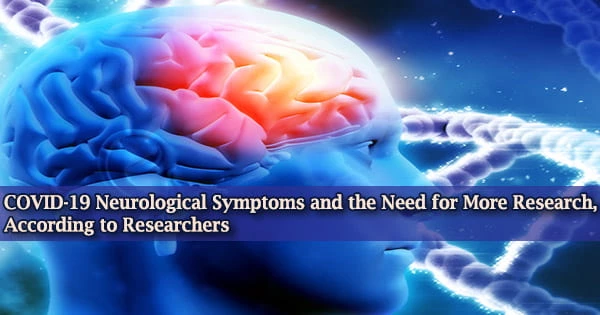SARS-CoV-2 was first discovered as a respiratory virus, but it has the potential to damage the entire body, including the brain system. Avindra Nath, M.D., clinical director of the National Institute of Neurological Disorders and Stroke (NINDS), and Serena Spudich, M.D., Yale School of Medicine, New Haven, Connecticut, discuss what is currently known about the effects of SARS-CoV-2 on the brain, the importance of more research into the underlying causes of Long Covid, and possible treatments for its symptoms in a new Viewpoint published in Science.
Acute COVID-19 has been linked to neurological symptoms such as loss of taste and smell, migraine, stroke, delirium, and brain inflammation. Although the virus does not appear to have infected many brain cells, the neurological symptoms could be caused by immunological activation, neuroinflammation, and damage to brain blood vessels.
Acute COVID-19 infection can sometimes result in long-term effects known as “Long Covid,” which can include a wide range of symptoms in the brain and nervous system, including loss of taste and smell, fatigue, pain, sleep disorders, autonomic disorders, and/or headache, as well as psychological effects like depression and psychosis.
The current scientific understanding of the potential bodily reactions to acute COVID-19 infection, as well as how those responses could lead to Long Covid symptoms, is presented by Drs. Nath and Spudich.
They also draw parallels between the symptoms of people with Long Covid and those who have myalgic encephalomyelitis/chronic fatigue syndrome (ME/CFS) or post-Lyme disease, implying that there may be shared risk factors.
Finally, the authors emphasize the urgent need for significant research efforts into identifying the full extent of Long Covid complications and their causes, given the wide variation in symptoms from person to person and the fact that many people with Long Covid were healthy prior to a relatively mild COVID-19 infection.
This type of study, which would entail a careful examination of persons with Long Covid classified by their specific symptoms, is critical for the development of diagnostic and therapeutic tools to diagnose and treat what is rapidly becoming a public health crisis. The NIH RECOVER COVID initiative is a large-scale research project aimed at achieving these objectives.





